Colleges For Autistic Students
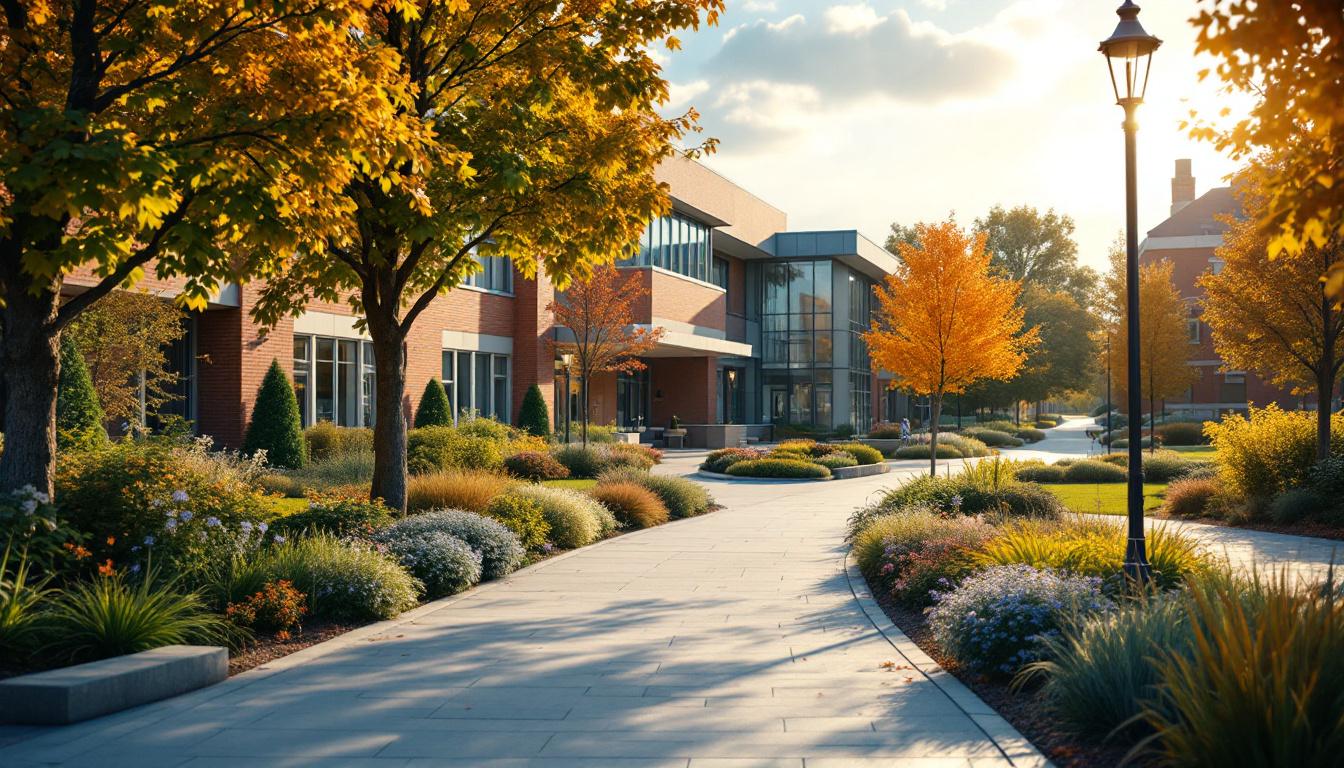
Unlocking Opportunities for Neurodiverse Learners in College
Recent developments in higher education have substantially increased support for autistic students. Recognizing autism as a disability under the Americans with Disabilities Act (ADA), colleges are legally required to offer reasonable accommodations—such as extended test times, sensory-friendly environments, and assistive technologies—that foster access and inclusion. Beyond compliance, many institutions proactively develop specialized programs aimed at enhancing social, academic, and life skills, which are critical for fostering independence and success. This article explores the landscape of colleges for autistic students, highlighting support programs, accommodations, choosing the right institution, and resources to guide families and students through the transition.
Overview of Autism Support Programs in Higher Education
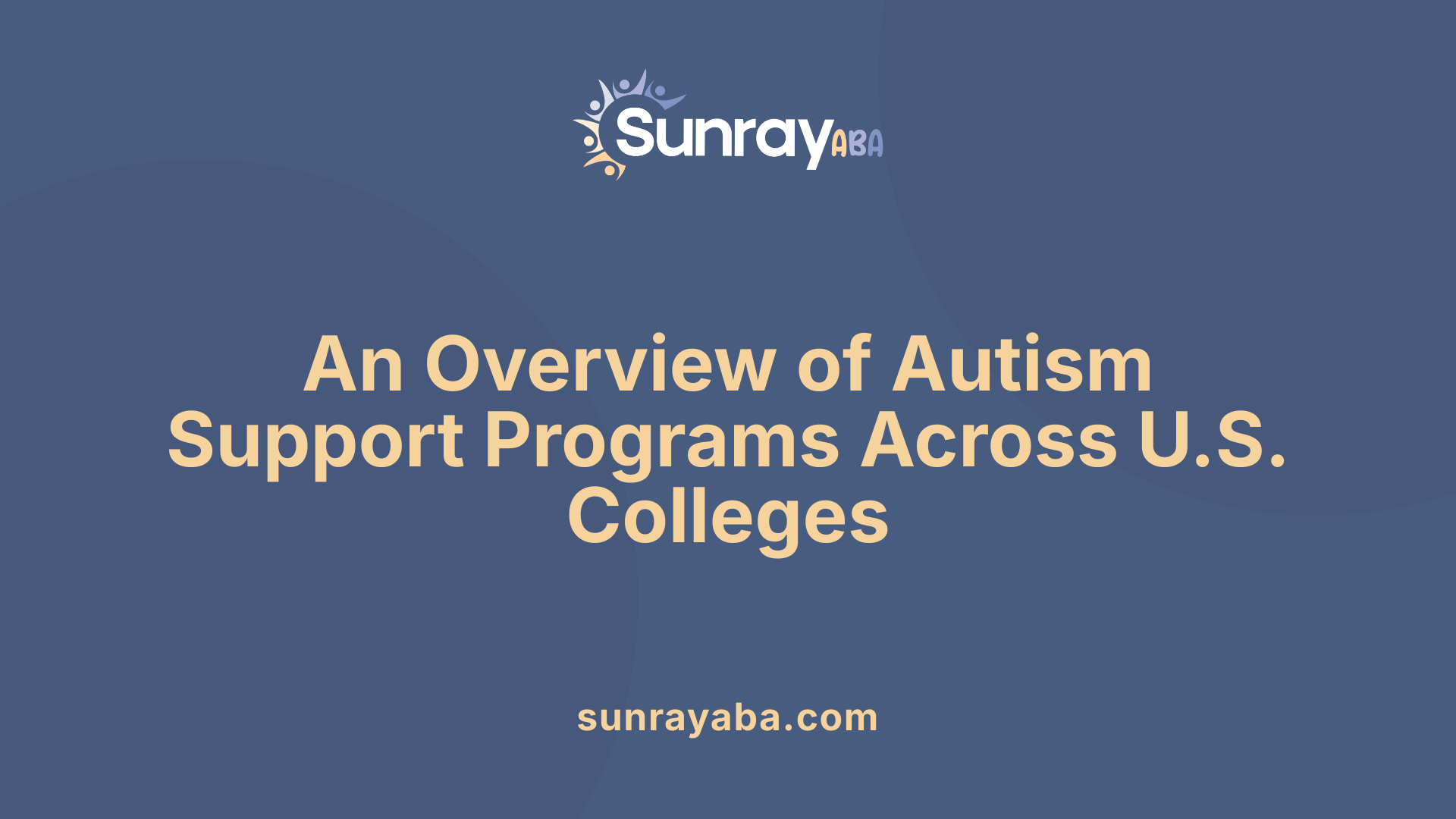 Many higher education institutions across the United States recognize the importance of supporting students with autism spectrum disorder (ASD) and other neurodiverse conditions. As a result, a growing number of colleges and universities—approaching 100 programs as of 2024—have established specialized services to help these students succeed academically, socially, and in their transition to independent living.
Many higher education institutions across the United States recognize the importance of supporting students with autism spectrum disorder (ASD) and other neurodiverse conditions. As a result, a growing number of colleges and universities—approaching 100 programs as of 2024—have established specialized services to help these students succeed academically, socially, and in their transition to independent living.
Support programs vary widely in scope and offerings, but most include mentoring, social skills training, transition assistance, and personalized academic support. Some are designed specifically for students with high-functioning autism or nonverbal learning disabilities, while others focus on broader neurodiverse populations.
Prominent examples of these programs include the University of Alabama’s ASD College Transition Support Program (UA-ACTS), which offers individualized services and peer mentoring to foster self-advocacy and daily living skills. Landmark College, designed specifically for students who learn differently—including many on the autism spectrum—provides strengths-based education, executive function coaching, and social support.
Several universities extend their support through comprehensive support networks. Rutgers University’s College Support Program, for example, helps students access campus resources and develop life skills, while the Spectrum Support Program at Rochester Institute of Technology offers peer coaching, skill development courses, and social events. Programs like the College at Cumberland in Atlanta are exclusively for neurodivergent students, offering tailored academic and emotional support.
Some colleges also offer early move-in options, specialized housing, and social integration initiatives such as buddy systems and peer mentorships. These efforts aim to reduce sensory overload and social anxiety, helping students feel more comfortable on campus.
The availability of these programs reflects a broader institutional commitment to increasing access, improving the college experience, and supporting the diverse needs of autistic students.
Types of Services Provided Including Mentoring, Social Skills Training, Transition Support
Colleges offering autism support programs typically include a range of services to address the multifaceted needs of students. These services often feature:
- Peer Mentoring: Pairing students with trained peer mentors, including graduate and undergraduate students, to facilitate social integration and academic navigation.
- Social Skills Development: Offering workshops, social events, and coaching to help students improve communication and build meaningful relationships.
- Transition Support: Providing pre-college orientation, early arrival options, and ongoing assistance to ease the transition from high school to college life.
- Academic Support: Tailored advisement, tutoring, writing assistance, and accommodations such as extended test times and sensory-friendly testing environments.
- Counseling and Mental Health Services: Addressing anxiety, stress, and other emotional challenges with specialized mental health support.
- Housing and Environmental Adjustments: Offering sensory-friendly dorms and quiet spaces to reduce overstimulation.
- Career and Life Skills Training: Supporting independent living, employment readiness, and self-advocacy.
These comprehensive services aim to foster a supportive campus environment where students with autism can thrive academically and socially.
| Program Name | Services Offered | Focus Area | Additional Details |
|---|---|---|---|
| University of Alabama - UA-ACTS | Individualized services, peer mentoring | Transition, daily living skills | Focuses on self-advocacy, social skills |
| Landmark College | Social coaching, executive functioning | Learning differences, social skills | Strengths-based, low student-to-faculty ratio |
| Rutgers University | Campus resource access, life skills | Life skills, academic success | Wide service network |
| Rochester Institute of Technology | Peer coaching, social events | Social skills, career development | Small group and individual support |
| College at Cumberland | Academic, emotional, social support | Neurodivergent students | Exclusive for neurodiverse students |
Support for students on the autism spectrum is increasingly diverse and accessible, reflecting an understanding of the critical role these programs play in higher education success.
Leading Institutions and Their Specialized Support Structures
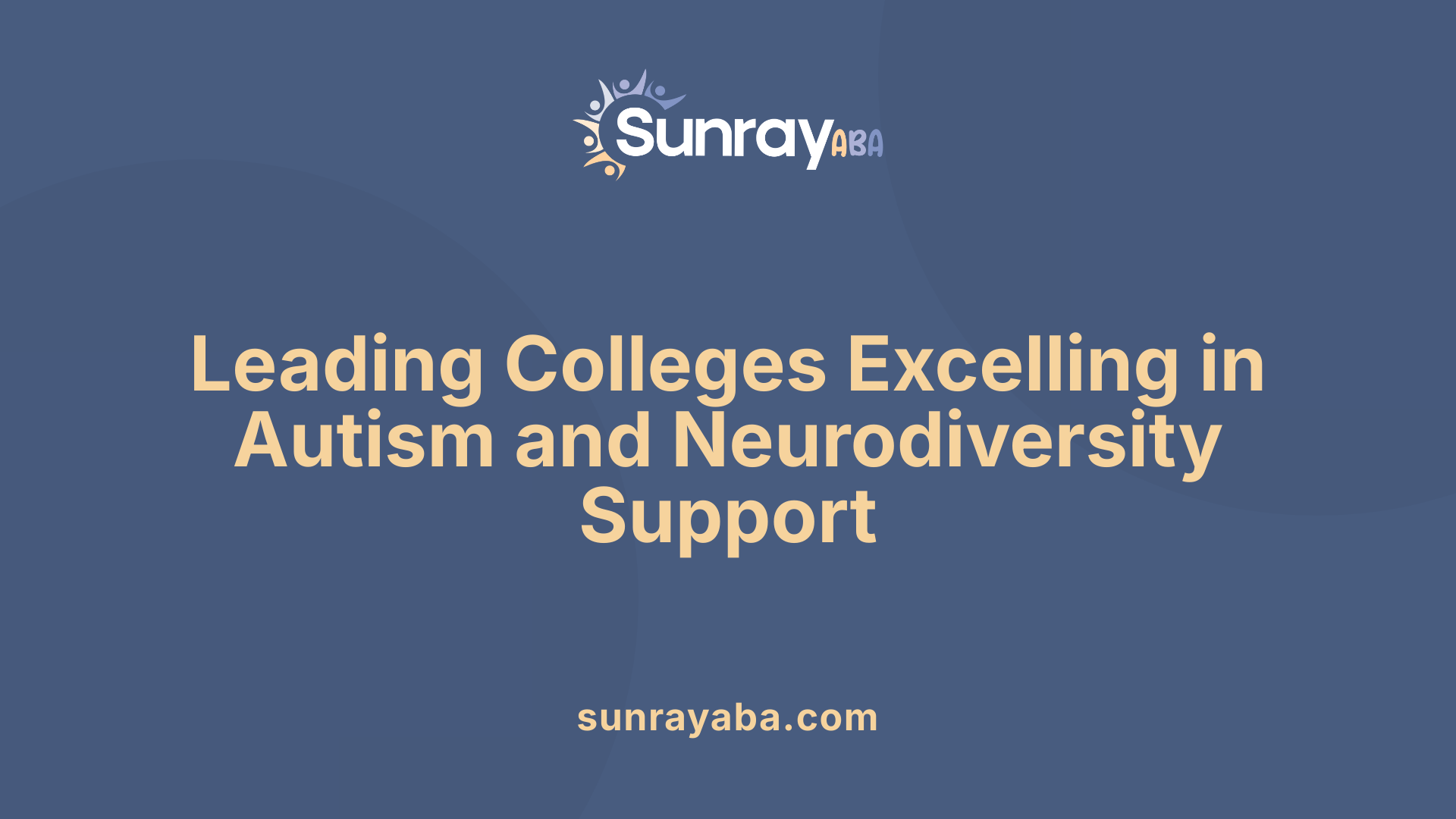
Are there colleges that specialize in neurodiversity and learning differences?
Several colleges in the United States are dedicated to supporting students with neurodiverse conditions, including autism and other learning differences.
Landmark College in Vermont stands out as an institution specifically designed for students with autism, ADHD, dyslexia, and executive functioning challenges. The college employs a strengths-based education model, promoting skill development through personalized coaching, assistive technology, and targeted counseling. Landmark also offers a comprehensive summer transition program to help students acclimate to college life.
Beacon College in Florida is the first accredited college in the U.S focused on students with learning differences. It provides extensive academic accommodations, social supports, and career counseling tailored to neurodiverse learners.
Other notable programs include Drexel University’s Autism Support Program, which offers peer mentoring and social events, and the Spectrum Support Program at Rochester Institute of Technology, focusing on personalized support including peer coaching and social activities. The University of Connecticut also features programs aimed at assisting students with ASD through academic and social support services.
These institutions emphasize individualized services, peer connections, and skill-building to foster independence and success, both during college and in career pursuits.
Are there free colleges or scholarships available for autistic students?
A number of scholarships and financial aid options can help alleviate the costs of college for students with autism. Many of these resources are provided by family-founded organizations like Autism Speaks, the Organization for Autism Research, and the National Autism Association.
Several colleges also offer programs that can be accessed at little or no cost, especially when supported by advocacy organizations or federal funding. Examples include the Raven Scholars Program at the University of Idaho and the Spectrum Support Program at Rochester Institute of Technology, both of which offer free or low-cost support services.
Federal law mandates that colleges provide reasonable accommodations—such as extended test times, quiet testing spaces, and note-taking support—free of charge. Additionally, scholarships, grants, and regional support funds are available through various state and national programs.
Families interested in funding their child’s education should explore scholarship opportunities and specific college aid programs. A search with the phrase “Autism scholarships and financial aid USA” can help locate the latest funding sources and application processes for prospective students.
Challenges and Strategies in College for Autistic Students
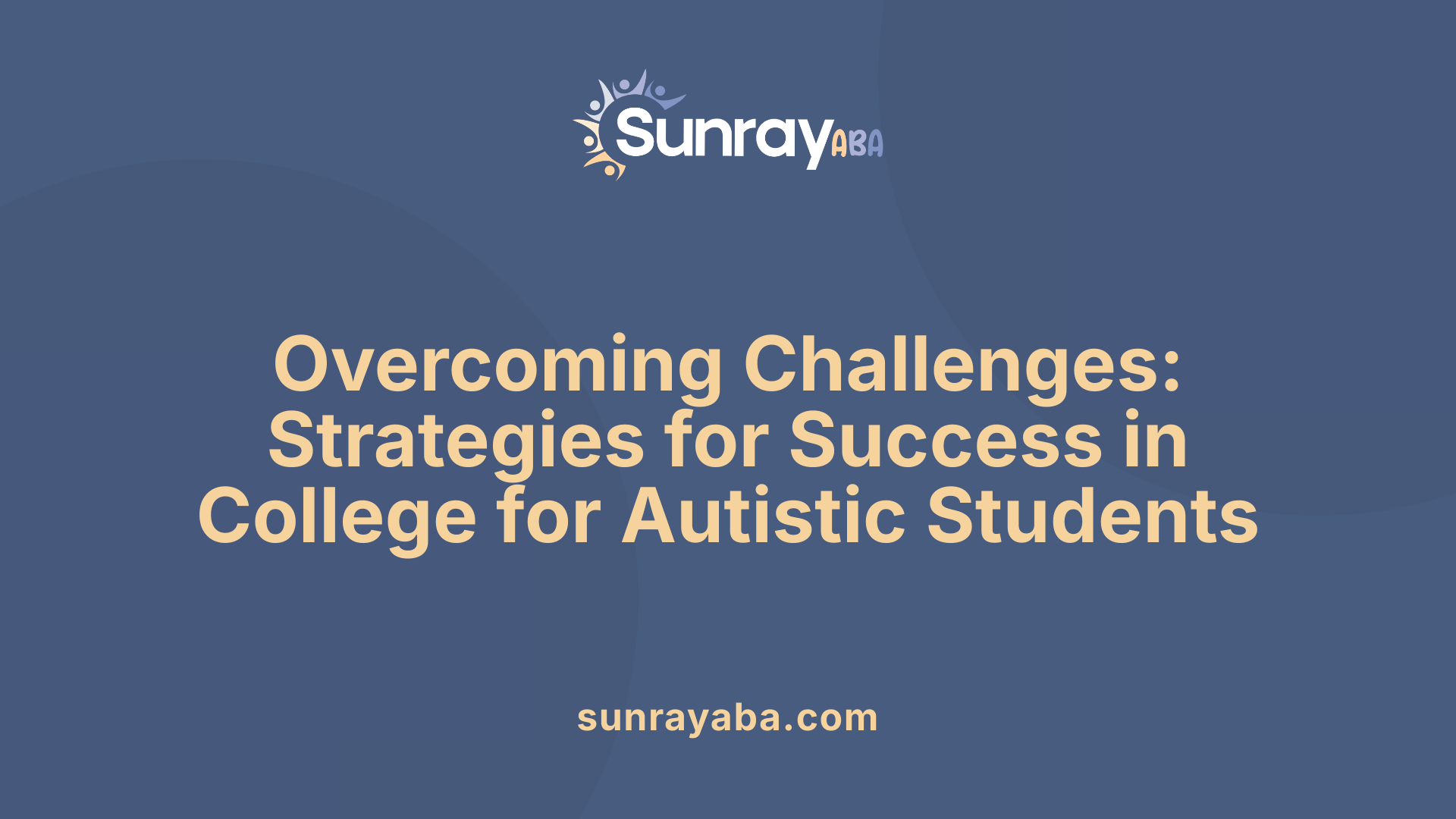
Is college challenging for autistic students?
Yes, college can present numerous challenges for students on the autism spectrum. These difficulties often stem from issues with organization, executive functioning, social interactions, and sensory sensitivities. Unlike the more structured environment of high school, college requires students to independently manage coursework, deadlines, housing, and social relationships.
Many students find that balancing academic demands with social and daily living skills can be overwhelming. Transitioning to this new independence often reveals gaps in self-advocacy and self-management. Fortunately, there are supportive resources and programs designed to assist. Early transition planning is critical, including disclosing diagnosis to campus disability services to access accommodations like extended test times, quiet testing rooms, or sensory-friendly housing.
Using organizational tools such as visual schedules, planners, alarms, and reminder systems can significantly help manage daily responsibilities. Additionally, support programs that offer social skills training, peer mentoring, and life skills coaching are vital. These initiatives help students develop independence, social competence, and confidence to navigate college life more successfully.
Programs like the Spectrum Support at Rochester Institute of Technology, the College Supports Program at Eastern Michigan University, or the College Support at Rutgers University exemplify structured support tailored to autistic students.
Overall, while college presents certain hurdles, with the right supports, planning, and awareness, students with autism can not only cope but thrive in their higher education journeys.
Key Factors for Families and Students in College Selection

How to evaluate campus environment and support services
When choosing a college, it's essential to assess whether the campus environment can meet the unique needs of an autistic student. Consider the availability of specialized programs such as those offered at Landmark College, which was established specifically for students with autism and learning differences. Look into whether the institution provides social coaching, executive functioning support, sensory-friendly spaces, and peer mentoring programs like those at Drexel University or Western Kentucky University.
Facilities should promote comfort and accessibility, including quiet rooms and sensory accommodations. Visiting campuses in person or virtually can help families observe the campus layout, noise levels, and overall atmosphere.
Support services like social skills classes, transition programs, and academic advising tailored for neurodiverse students are valuable. For example, the Spectrum Support Program at Rochester Institute of Technology offers personalized coaching, and their social events foster social integration.
Important questions to ask college disability offices
Families should prepare a list of questions to understand how well a college can support their student. Key questions include:
- Does the college offer specialized programs or support services for neurodiverse students, such as peer mentoring, social skills development, and life skills training?
- How are accommodations like sensory-friendly housing, extended testing, or reduced-distraction environments implemented?
- What training have faculty and staff received regarding autism?
- Are there dedicated staff or coordinators for students with autism?
- How does the college facilitate social integration and community engagement?
- What are the costs associated with additional support services, and what financial aid options are available?
Understanding these aspects will help families select a campus that provides a supportive, welcoming environment tailored to the student’s strengths and challenges.
What should I consider when choosing a college for an autistic student?
Families should evaluate a college’s capacity to provide tailored support services addressing social, emotional, executive functioning, and sensory needs. Factors include the availability of specialized programs for neurodiverse students, campus accessibility, sensory accommodations like quiet spaces, and peer mentoring. Visiting campuses, discussing support options with disability offices, and understanding how accommodations are implemented are crucial steps.
It’s also valuable to explore housing options, mental health services, and faculty training. Selecting a college that aligns with the student’s individual goals and needs will foster an environment where the student can develop independence, skills, and confidence.
What degrees are suitable for autistic students wanting to pursue a career helping others?
Degrees in psychology, social work, or sociology are well-suited for autistic students interested in careers supporting others. These fields focus on understanding behavior, learning, and providing assistance, offering a strong foundation for roles in therapy, counseling, advocacy, or community service.
Many programs also include practical experiences and internships that prepare students for employment in helping professions.
More information search query
College selection tips for autistic students
Selecting the right college involves a careful evaluation of support systems, campus environment, and academic programs. Families are encouraged to engage with disability services beforehand, visit campuses, and ask specific questions tailored to the student's needs. By focusing on these critical factors, families can help ensure their autistic student finds a nurturing environment for growth, learning, and independence.
Specific Support Strategies and Resources for Success
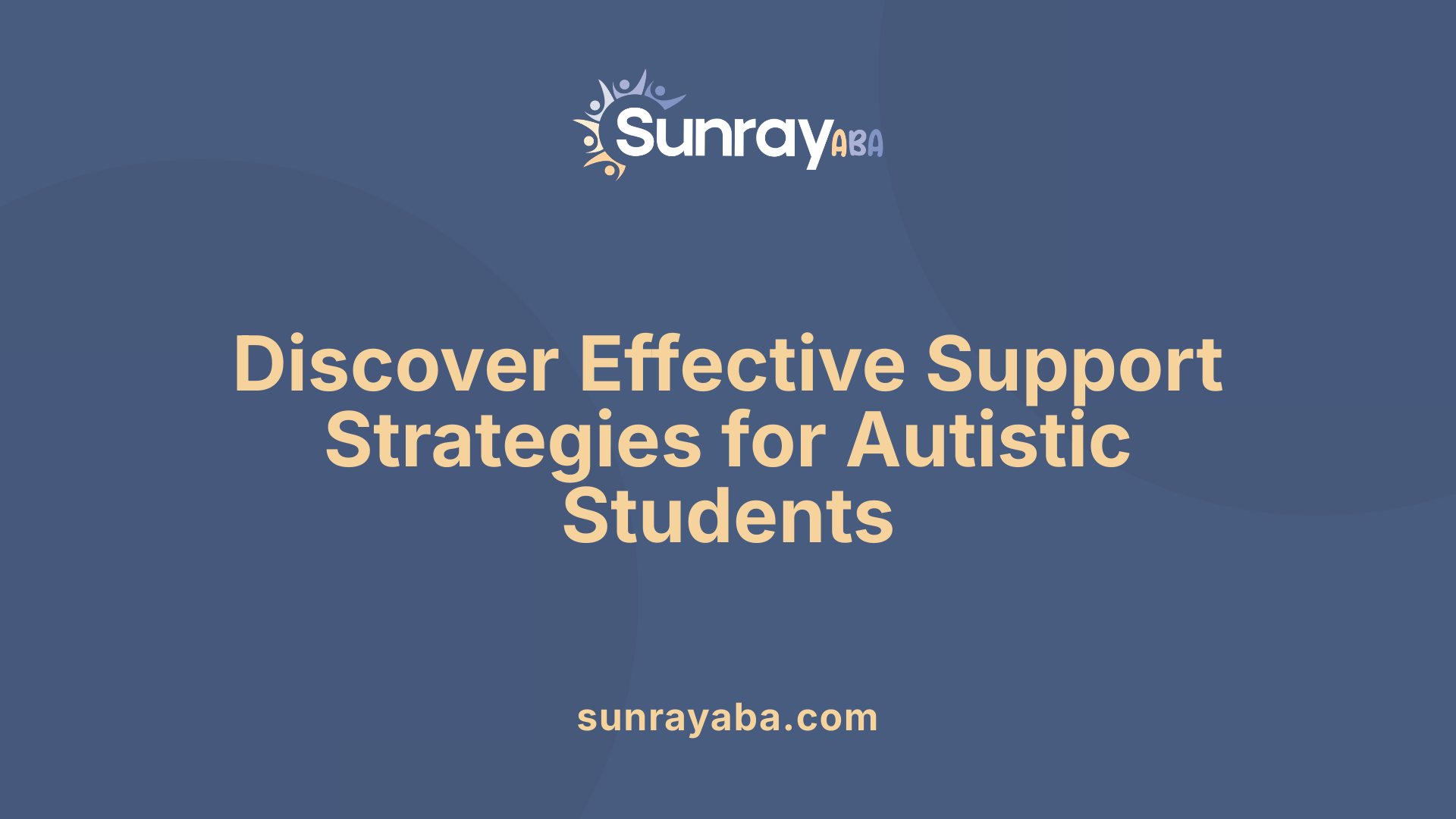
What accommodations and programs are available for autistic students?
Students on the autism spectrum can access a wide range of support services designed to help them succeed in college. These include sensory-friendly classrooms, where environmental modifications reduce sensory overload, and flexible assessments that accommodate individual needs. Support programs often incorporate speech-language and occupational therapies to enhance communication and daily living skills.
Assistive technologies also play a vital role, with tools such as communication devices, visual schedules, and specialized software aiding academic and social engagement. Many colleges offer dedicated programs providing social skills training, mentoring, and counseling to foster inclusion and personal development.
Disability services offices are crucial for early support. They facilitate access to accommodations and assistive technologies once students disclose their diagnosis. Promoting awareness among faculty and staff about autism ensures an inclusive campus environment, further supporting academic achievement and social participation.
Several institutions exemplify these efforts: the Drexel Autism Support Program offers peer mentoring and social events; the Landmark College specializes in supporting students with learning differences, including autism, through executive function coaching and social skills development; and the Marshall University Autism Support Program provides tailored behavioral and academic support. These programs demonstrate a comprehensive approach to meeting the diverse needs of autistic students and promoting their independence.
When should transition planning start?
Effective transition planning is crucial for students with autism preparing to enter college. Ideally, this process should commence early in high school, around age 14. Beginning at this stage allows students to develop essential skills in independence, communication, and self-advocacy, laying a strong foundation for college success.
Starting earlier has several advantages. It provides ample time to explore postsecondary options, including identifying appropriate programs and campus supports. Early planning also involves teaching organizational strategies and social skills needed to navigate college life effectively.
Proactive transition planning includes engaging with disability services early, learning about available accommodations, and practicing self-advocacy. It can also involve vocational training and participation in social skills groups to bolster confidence.
Research shows that students who begin transition planning early are better equipped to handle the academic and social challenges of college. Colleges such as Rutgers and Drexel emphasize early disclosure and planning, which facilitates tailored support and smoother integration into university life.
In conclusion, initiating transition efforts by age 14, with continued focus throughout high school, ensures that students on the spectrum are prepared for the transition and maximize their college experience.
Research and Resources in Autism Higher Education
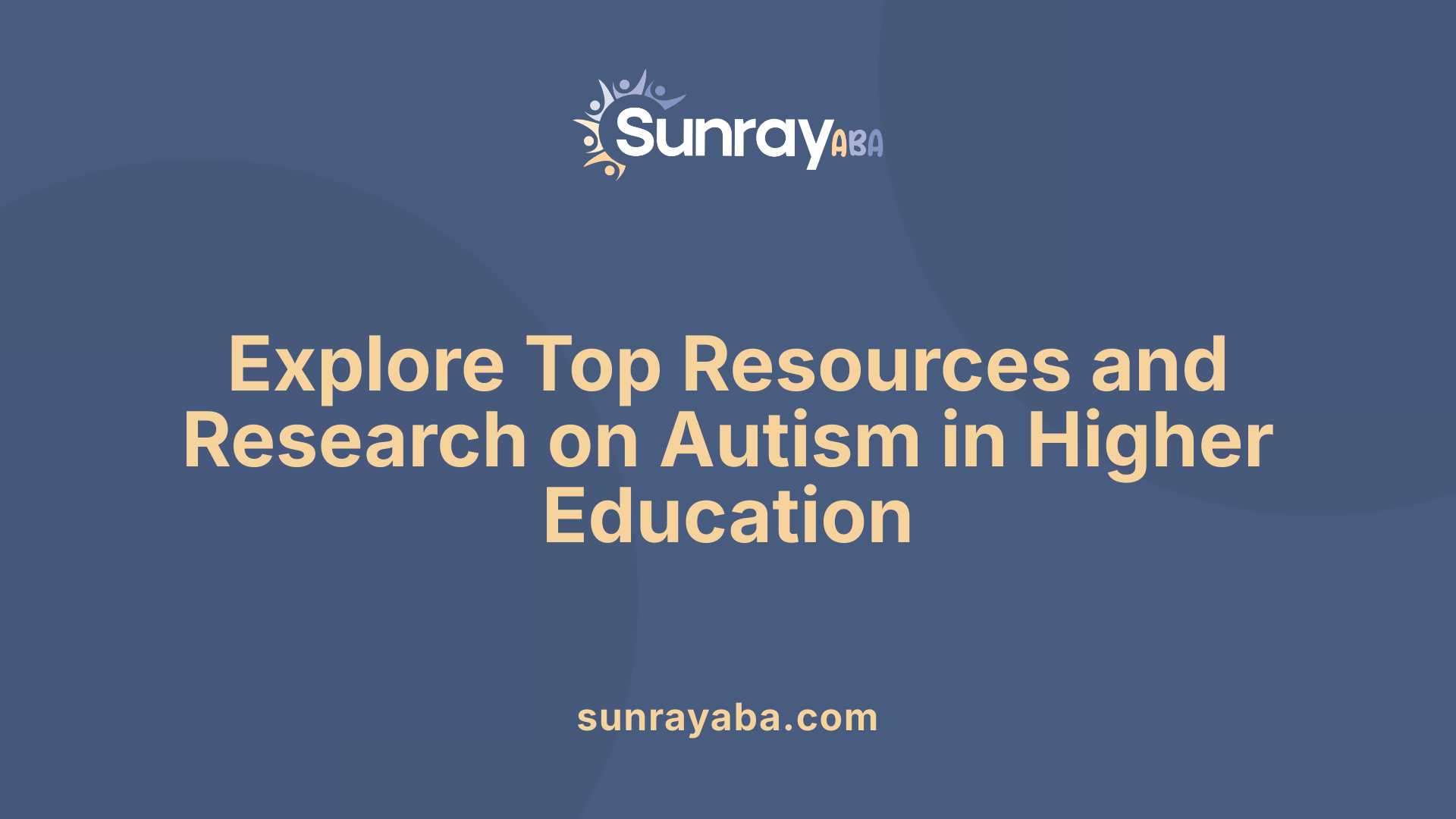
What resources and research are available related to autism in higher education?
A prominent organization supporting research and development in this area is the College Autism Network (CAN). It serves as a central hub for resources, research, and advocacy dedicated to improving college experiences for students with autism spectrum disorder (ASD). The network maintains a detailed database of autism-specific college programs across the United States, allowing students and families to find suitable institutions that offer tailored support services.
CAN also hosts annual events such as the College Autism Summit, which convenes educators, researchers, students, and advocates to share best practices, innovations, and emerging research. Through webinars and publications, the organization disseminates findings on effective interventions, campus accommodations, and inclusive practices.
Other notable organizations include College Autism Spectrum (CAS), which specializes in college counseling and career readiness support, and the Frist Center for Autism and Innovation at Vanderbilt University, which conducts cutting-edge research on autism and technology integration. Yale’s program led by Dr. Jane Thierfeld Brown offers additional training and research insights for supporting college students on the autism spectrum.
Collectively, these entities contribute to the body of knowledge that aims to enhance educational access, inclusion, and success for autistic students.
Are there specific best practices for supporting autistic students in college?
Supporting students with autism effectively often involves a multi-faceted approach. Early transition planning from high school, ideally starting around age 14 or earlier, helps students develop independence and executive functioning skills before entering college. Personalized support plans that adapt as students progress through their college years are crucial.
Training faculty and staff on autism awareness and accommodations ensures that students receive informed, empathetic support. Sensory-friendly environments, including quiet study areas and sensory rooms, help students manage sensory overload.
Peer mentoring programs foster social belonging, while the integration of technology—such as visual supports, planners, and reminders—assist with organization and time management.
Regular, open communication between students and support staff, along with flexible assessment methods like extended testing time or alternative assignments, promote academic success. Universities that encourage collaboration among disability services, mental health providers, and academic departments tend to create more inclusive campus cultures.
In summary, implementing these practices can substantially improve the educational experiences and outcomes for students on the autism spectrum.
| Organization | Focus Area | Notable Initiatives | Contact / Resources |
|---|---|---|---|
| College Autism Network | Research, policy, advocacy | Summit, webinars, database of programs | www.collegeautismnetwork.org |
| College Autism Spectrum | Counseling, career support | Webinars, training, conference | www.collegeautismspectrum.org |
| Yale Autism Programs | Academic support and training | Webinars, faculty workshops | yale.edu/autism-support |
| Frist Center for Autism | Innovation, research, technology integration | Research grants, events | fristcenter.vanderbilt.edu |
Understanding these resources and implementing evidence-based practices can significantly enhance higher education environments for students on the spectrum, promoting greater success and inclusion.
Innovations and Future Directions in Autism Support in Higher Education
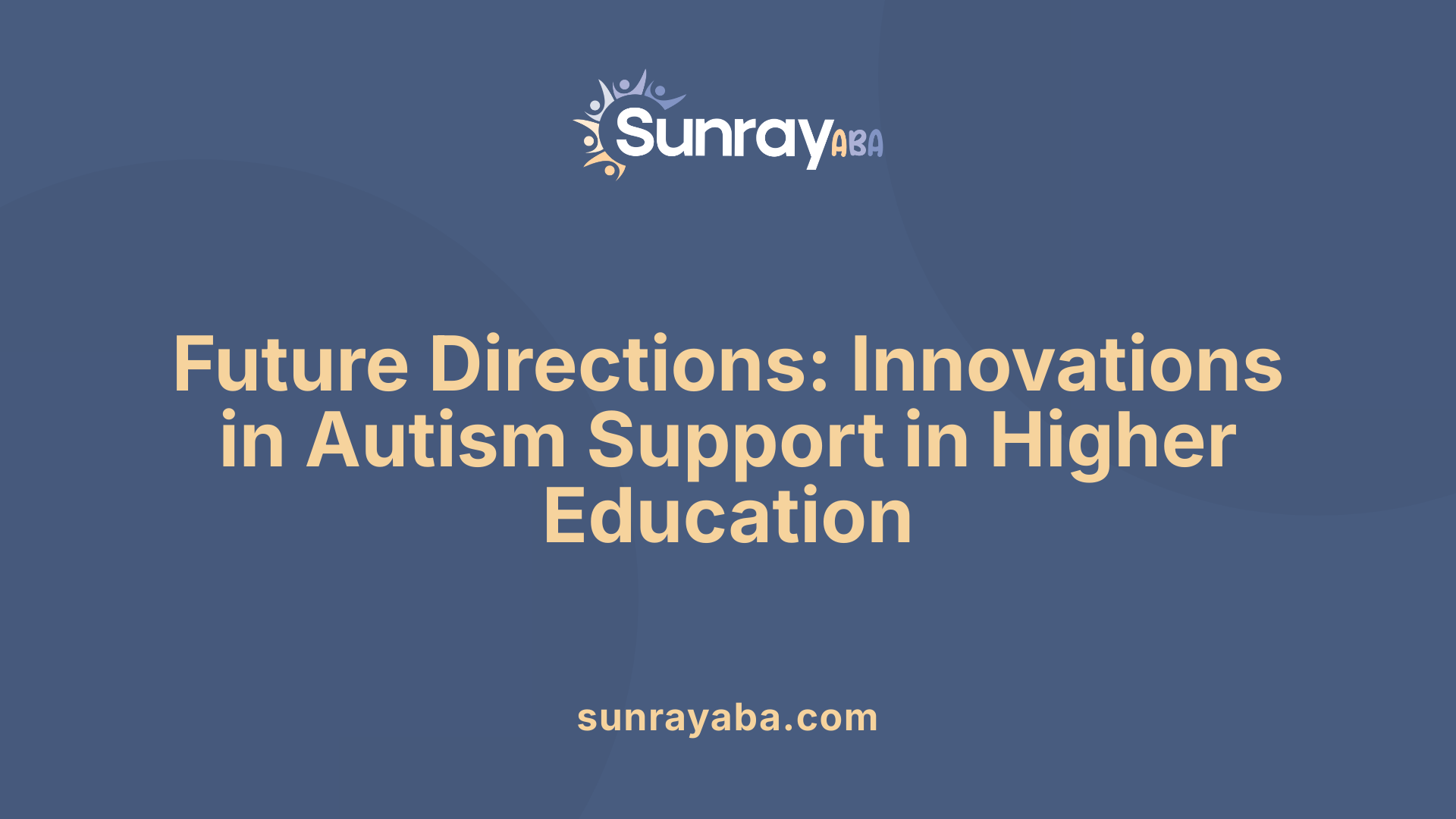
What is the future of autism support programs at colleges?
The outlook for autism support in higher education is increasingly optimistic, driven by technological advancements and evolving educational practices. Future programs are expected to incorporate virtual coaching platforms and online curriculums specifically designed to meet neurodiverse students' needs. These digital tools make support more flexible and accessible, allowing students to learn at their own pace and receive personalized assistance from anywhere.
Colleges are also moving toward integrating social and vocational skills training directly into academic programs, helping students build practical competencies alongside their degrees. This person-centered approach emphasizes individualized support plans, which adapt to each student's strengths and challenges.
Moreover, collaboration with industry partners and community organizations is expanding employment opportunities. Internship and job placement programs tailored for students with autism will likely grow, providing real-world experience that transitions smoothly into careers.
Research remains a cornerstone in this development, with ongoing studies refining effective strategies and best practices. Advocacy efforts by organizations like the College Autism Network promote policy changes to foster more inclusive campus environments. These initiatives aim to normalize accommodations and support systems, ultimately enabling autistic students not just to succeed academically but to thrive professionally as well.
How can colleges better serve students with autism in the future?
To better serve students on the spectrum, colleges must develop more comprehensive and flexible support systems. Incorporating advanced assistive technologies, such as augmented reality tools and specialized apps, can facilitate learning and independence.
Tailored curricula that address individual career goals and social needs will also enhance engagement and skill development. Expanding peer mentoring programs, including virtual peer networks, allows for broader community building and more consistent social support.
Faculty training on neurodiversity is vital; increasing awareness and understanding among educators and staff can create a more inviting and understanding campus climate. Sensory-friendly campus design—such as quiet study zones and adjustable lighting—further promotes inclusivity.
Building stronger partnerships between colleges, employers, and community agencies will ensure smoother transitions from education to employment. These collaborations can lead to expanded internship placements, apprenticeships, and employment pipelines.
Finally, emphasizing early transition planning—starting as young as age 14—will prepare students to advocate for themselves and develop independence skills. Cultivating a culture of acceptance, understanding, and proactive support will be key to providing holistic services that empower autistic students to reach their full potential.
| Aspect | Future Developments | Expected Benefits |
|---|---|---|
| Technology | Virtual coaching, online curriculums, assistive tools | Increased accessibility and personalized support |
| Curriculum | Integration of social/vocational skills into academics | Better preparation for real-world challenges |
| Faculty & Staff | Specialized training, sensory-friendly design | More inclusive learning environments |
| Employment | Industry partnerships, internships | Seamless college-to-career transitions |
| Research & Policy | Data-driven practices, inclusive policies | Continuous improvement and normalization |
| Early Support | Start transition planning earlier | Greater independence and self-advocacy |
As these innovations unfold, colleges will become more equipped to meet the diverse needs of students with autism, fostering environments where they can excel academically, socially, and professionally.
Building an Inclusive Future for Autistic Learners
As awareness grows and support programs evolve, colleges continue to become more accessible and accommodating for students on the autism spectrum. The combination of legal mandates, innovative programs, research-backed practices, and dedicated staff creates an environment where neurodiverse students can thrive academically, socially, and professionally. Families and students should leverage available resources, advocate for tailored supports, and select institutions that align with their individual needs and aspirations. A more inclusive higher education landscape not only benefits autistic students but enriches the entire campus community, fostering understanding, diversity, and lifelong success.
References
- College Programs for Students with Autism
- College Programs - College Autism Spectrum
- 19 Best Colleges for Neurodivergent Students - IvyWise
- College Autism Network
- How to Find the Right College for Autistic Students - SPARK for Autism
- Loras College is a Top 25 School for Students with Autism
- Autism & College - Autism Research Institute